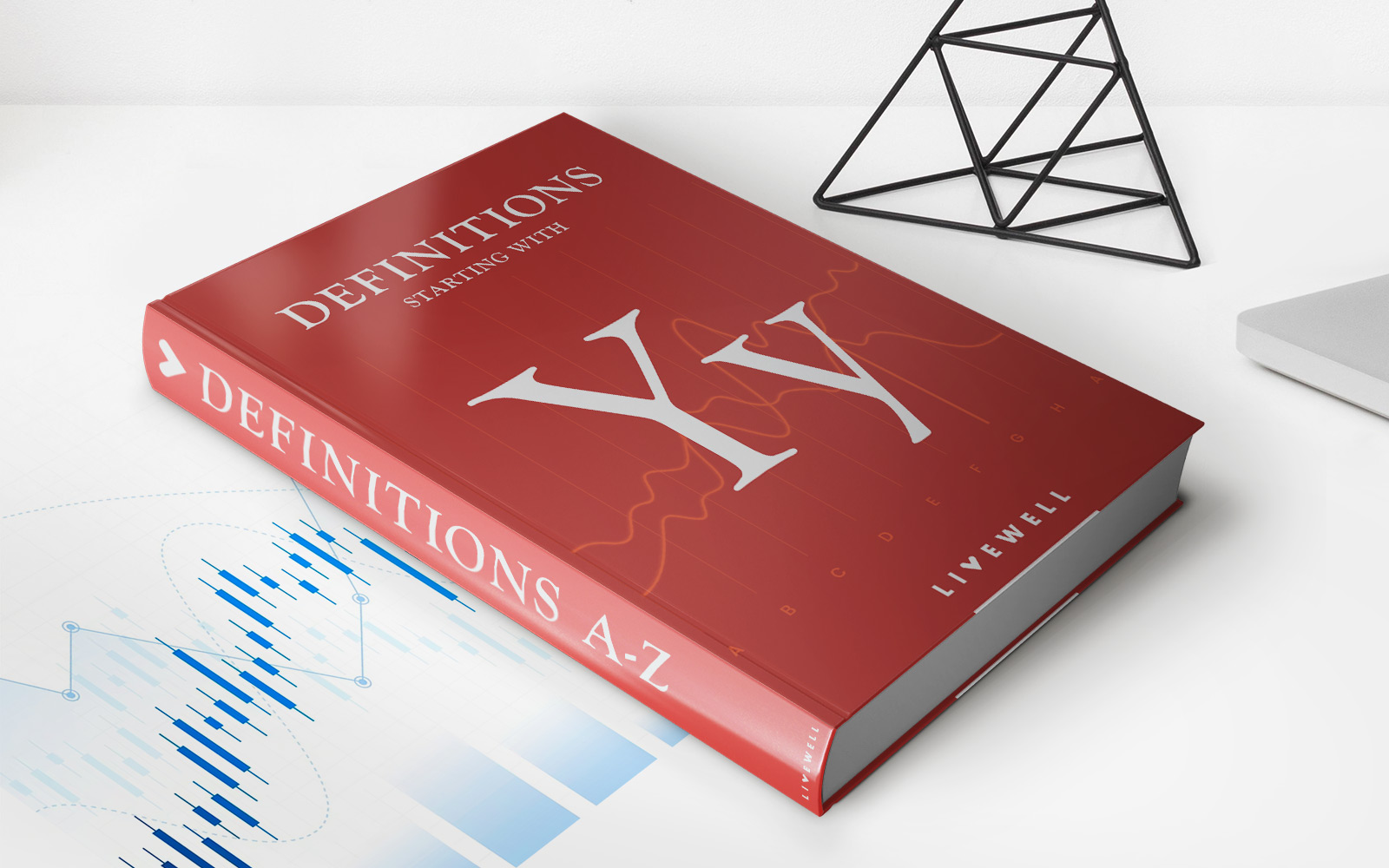

Finance
What Happens If You Don’t Have Life Insurance?
Modified: February 21, 2024
Discover the consequences of not having life insurance and learn why it's essential for your financial security. Protect your loved ones today with a comprehensive life insurance plan.
(Many of the links in this article redirect to a specific reviewed product. Your purchase of these products through affiliate links helps to generate commission for LiveWell, at no extra cost. Learn more)
Table of Contents
- Introduction
- Lack of Financial Protection
- Potential Burden on Loved Ones
- Difficulty Covering Final Expenses
- Outstanding Debts and Financial Obligations
- Lost Income Replacement
- Limited Access to Health and Medical Care
- Inability to Leave a Legacy or Inheritances
- Limited Options for Business Continuity
- Peace of Mind for the Future
- Conclusion
Introduction
Life insurance is often seen as a crucial component of financial planning. It provides a safety net, ensuring that loved ones are protected financially in the event of the policyholder’s death. However, not everyone recognizes the importance of having life insurance coverage. They may view it as an unnecessary expense or believe that they don’t need it because they are healthy or have sufficient savings.
While it’s true that not everyone needs life insurance, it’s essential to understand the potential consequences of not having this financial protection in place. Life is unpredictable, and unfortunate events can occur at any time. Without life insurance, individuals leave themselves and their loved ones vulnerable to various financial risks and burdens.
In this article, we will explore the potential consequences of not having life insurance. From the financial strain on loved ones to the challenges of covering final expenses, we will delve into the various ways in which the absence of life insurance can impact individuals and their families.
It’s important to note that the significance of life insurance varies from person to person, depending on their financial circumstances, responsibilities, and goals. However, understanding the potential drawbacks of not having life insurance can help individuals make informed decisions about their financial future.
So, let’s dive into the potential consequences of not having life insurance and the impact it can have on your loved ones and your financial well-being.
Lack of Financial Protection
One of the primary consequences of not having life insurance is the lack of financial protection for your loved ones. When you have dependents or family members who rely on your income to meet their daily needs, the absence of life insurance can leave them financially vulnerable.
Life insurance serves as a safety net, providing a death benefit that can replace lost income and help maintain the household’s financial stability. Without this protection, your loved ones may struggle to cover essential expenses such as mortgage or rent payments, utility bills, groceries, and education costs.
Furthermore, if you were the primary breadwinner of the family, the loss of your income could have a significant and long-lasting impact on their standard of living. They may be forced to make drastic lifestyle changes, sell assets, or even take on additional debt to make ends meet.
Having a life insurance policy in place ensures that your loved ones are not left financially distressed in the event of your untimely passing. It provides them with the financial resources to maintain their quality of life and meet their ongoing financial obligations.
Even if you’re not the primary earner in your family, life insurance can still provide a significant level of financial protection. It can cover expenses such as childcare, household maintenance, and other contributions to the family unit that may need to be replaced if you were no longer able to provide them.
Ultimately, the lack of financial protection can create a substantial burden for your loved ones during an already difficult time. Ensuring that you have adequate life insurance coverage can alleviate some of this burden and provide peace of mind knowing that your family will be taken care of financially.
Potential Burden on Loved Ones
Not having life insurance can place a significant burden on your loved ones. The emotional toll of losing a family member or loved one is already immense, and adding financial stress to the equation can make it even more challenging to cope.
When someone passes away without life insurance, their dependents may be left struggling to cover immediate and long-term expenses. This can include funeral and burial costs, outstanding debts, and ongoing living expenses. Without the necessary financial resources, their financial stability can be compromised, leading to added stress and hardship.
Funeral and burial expenses can be substantial, often reaching several thousand or tens of thousands of dollars. These costs can cause a significant financial strain on the surviving family members, who are already dealing with the emotional pain of the loss. Without life insurance, loved ones may face the difficult decision of having to compromise on the quality and appropriateness of the memorial service or burial.
In addition to funeral expenses, outstanding debts can also become a considerable burden for loved ones when there’s no life insurance coverage. Loans, credit card debts, and mortgage payments may still need to be repaid, and without the financial resources to clear these obligations, loved ones may be left dealing with the consequences.
Moreover, ongoing living expenses can become a challenge for surviving family members who relied on your income. Without life insurance, they may find it difficult to maintain their current lifestyle or even afford basic necessities. The absence of a safety net can force them to make drastic lifestyle changes and potentially struggle with poverty.
By not having life insurance, you risk placing an undue burden on your loved ones during an already difficult time. It is essential to consider their emotional and financial well-being and provide them with the necessary protection to alleviate some of these burdens.
Having life insurance ensures that your loved ones have the financial resources to handle the financial challenges associated with your passing. It provides them with the means to cover immediate expenses, manage outstanding debts, and maintain their quality of life in the long run.
Difficulty Covering Final Expenses
One of the immediate challenges that arise when someone passes away without life insurance is the difficulty in covering final expenses. Funeral and burial costs can be significant and potentially create a financial burden for your loved ones.
Funeral expenses can vary widely depending on factors such as location, type of service, and personal preferences. On average, a traditional funeral can cost several thousand dollars, while more elaborate or customized services can be even more expensive.
Without life insurance to help offset these costs, loved ones may find themselves struggling to pay for the funeral arrangements. They may be forced to make difficult decisions, such as opting for a less expensive service or requesting financial assistance from friends and family.
Not having the financial means to provide a proper send-off can intensify the emotional distress and add an unnecessary burden during an already challenging time of grief and mourning.
Furthermore, it’s important to consider other associated final expenses such as burial or cremation fees, transportation, memorial services, and obituary placements. These expenses can quickly add up and impact the financial stability of your loved ones.
Having life insurance coverage ensures that your loved ones have the necessary funds to cover these final expenses without causing additional financial strain. It allows them to focus on grieving and honoring your memory instead of worrying about how to pay for the funeral and other associated costs.
By having life insurance, you provide your loved ones with the means to give you a dignified farewell and pay tribute to your life without the added stress of financial burdens.
Outstanding Debts and Financial Obligations
One of the consequences of not having life insurance is the potential burden it can place on your loved ones when it comes to outstanding debts and financial obligations. When you pass away, any debt that you leave behind becomes the responsibility of your estate.
Outstanding debts can include mortgages, car loans, credit cards, student loans, and personal loans. If you don’t have sufficient assets or savings to cover these debts, your loved ones may be left to manage them on their own.
Without life insurance, your family may find themselves struggling to make loan payments and meet their other financial obligations. They could face the possibility of additional stress and potential financial hardship.
In some cases, creditors may seek to collect debts from your estate, which could result in the sale of assets or property that you intended to pass on to your loved ones. This can significantly impact their financial stability and future plans.
Having life insurance coverage can help alleviate this burden. The death benefit from a life insurance policy can be used to settle outstanding debts, ensuring that your loved ones are not left grappling with financial obligations they are unprepared for.
By having life insurance, you provide a financial safety net that helps protect your loved ones from the potentially overwhelming burden of outstanding debts. They can use the proceeds from the policy to pay off debts, maintain their financial stability, and preserve any assets or property you intended to leave to them.
Life insurance gives your family the opportunity to navigate the difficult period after your passing with greater financial security and stability. It allows them to focus on remembering and honoring you without the added stress of financial obligations.
Lost Income Replacement
One of the significant consequences of not having life insurance is the loss of income replacement for your loved ones. If you are the primary breadwinner or a significant contributor to your family’s finances, your sudden passing can leave them without a stable source of income.
Without life insurance, your loved ones may struggle to replace your income and maintain their current standard of living. They may face difficulties in paying their bills, covering daily expenses, and pursuing long-term financial goals.
Life insurance provides a solution to this problem by offering a death benefit that can act as a replacement for your lost income. The proceeds from a life insurance policy can help bridge the financial gap and provide a steady stream of income to support your family’s ongoing needs.
Whether it’s paying the mortgage, funding education costs, or covering everyday expenses like groceries and utilities, life insurance ensures that your loved ones can maintain their quality of life and financial well-being after your passing.
Furthermore, life insurance can also provide funds to help achieve other long-term financial goals, such as your children’s education or retirement planning. It can provide a buffer to ensure that your loved ones can continue to work towards their dreams and aspirations, even in your absence.
By having life insurance coverage, you can secure your family’s financial future and protect them from the potential hardships of losing your income. It offers peace of mind, knowing that your loved ones will have the financial resources they need to move forward and thrive.
Life insurance is not just about providing financial security in the present but also about creating a foundation for your family’s future by replacing the income they would have lost due to your untimely passing.
Limited Access to Health and Medical Care
Another consequence of not having life insurance is the potential limited access to health and medical care for your loved ones. Health insurance coverage typically ends when the policyholder passes away, leaving surviving family members without adequate healthcare protection.
Healthcare costs can be exorbitant, and without the safety net of life insurance, your loved ones may struggle to afford necessary medical treatments, medications, and ongoing healthcare expenses.
Furthermore, under traditional employer-based health insurance plans, the coverage for dependents may be terminated upon the death of the policyholder. This can leave your spouse, children, or other dependents without the same level of health insurance coverage they were accustomed to.
Without life insurance to help cover the costs, your loved ones may be forced to forgo or delay essential medical treatments and preventative care. This can have a detrimental impact on their health and well-being.
However, having life insurance can provide a financial safety net for healthcare expenses. The death benefit from a life insurance policy can be used to cover medical bills, purchase health insurance coverage, or even establish a medical emergency fund to ensure that your loved ones have access to necessary healthcare services.
Life insurance can help alleviate the financial burden of healthcare expenses, allowing your family to receive the medical care they need without compromising their financial stability.
By ensuring your loved ones have life insurance coverage, you provide them with the means to maintain access to quality healthcare, enabling them to prioritize their health and well-being during difficult times.
Having life insurance gives your family the peace of mind that they can receive the necessary medical care and treatment without having to worry about the financial implications.
Inability to Leave a Legacy or Inheritances
Not having life insurance can result in the inability to leave a legacy or inheritances for your loved ones. Life insurance can play a crucial role in preserving and passing on your wealth and assets to future generations.
Without life insurance, your loved ones may not receive the financial support or inheritances they might have expected. This can limit their opportunities and impact their financial stability in the long run.
Life insurance provides a way to create a lasting legacy by ensuring that your loved ones receive a financial benefit after your passing. It can serve as an inheritance for your children, grandchildren, or other beneficiaries, providing them with the means to pursue their dreams, further their education, or start their own businesses.
Life insurance can also enable you to leave a charitable legacy by designating a portion of the death benefit to support causes or organizations that you care about. This allows you to make a positive impact even after you’re gone.
Furthermore, life insurance can ensure the smooth transfer of assets and property to your loved ones, mitigating the risk of legal battles or disputes over inheritance. The death benefit from a life insurance policy can help cover estate taxes, settlement costs, or any outstanding financial obligations, ensuring that your loved ones receive their rightful inheritances.
By having life insurance coverage, you have the opportunity to leave a significant and meaningful legacy for your loved ones. It allows you to provide a financial foundation and opportunities for future generations, enabling them to thrive and continue your legacy.
Life insurance is not just about protecting your loved ones financially in the present, but also about leaving a lasting impact and securing their financial well-being for years to come.
Limited Options for Business Continuity
Not having life insurance can create significant challenges when it comes to business continuity, especially if you are a business owner or a key partner in a business venture. Without proper planning and life insurance coverage, the future of your business may be at risk.
In the event of your passing, the absence of life insurance can leave your business and co-owners in a vulnerable position. There may be a lack of funds to cover critical expenses or to sustain operations during the transition period.
Without life insurance, your business partners may face difficulties in finding the necessary resources to buy out your share or maintain the financial stability of the business. This can lead to disruptions in the day-to-day operations, loss of key clients or contracts, and a decline in the overall value of the business.
Having life insurance coverage can provide a solution for business continuity by ensuring that funds are available to support the transition and sustain the business in your absence. A suitable life insurance policy, such as a buy-sell agreement or key person insurance, can protect your business from financial uncertainties.
A buy-sell agreement funded by life insurance can provide liquidity to facilitate the smooth transfer of business ownership. Upon your passing, the life insurance proceeds can be used to buy out your shares from your beneficiaries and provide them with fair compensation.
Similarly, key person insurance can help mitigate the financial impact of losing a crucial individual in the business. The death benefit from the policy can be used to cover expenses, recruit and train a replacement, or provide financial stability during a challenging transition period.
By having life insurance coverage tailored to your business needs, you protect the continuity and financial stability of your enterprise. It ensures that your business partners and employees are not left scrambling to manage the financial fallout caused by your untimely passing.
Life insurance provides peace of mind, knowing that your business will be protected and able to continue operating, even in your absence. It safeguards the future of your business, the livelihoods of your employees, and the investments you have made over time.
Peace of Mind for the Future
One of the often overlooked benefits of having life insurance is the peace of mind it provides for the future. Knowing that you have taken the necessary steps to protect your loved ones and secure their financial well-being can bring a sense of comfort and peace.
Life is full of uncertainties, and none of us can predict what will happen tomorrow. Having life insurance coverage creates a safety net that provides reassurance that your family will be taken care of in the event of your passing.
Knowing that your loved ones will have the financial resources to cover immediate expenses like funeral costs, outstanding debts, and everyday living expenses brings peace of mind. It allows you to focus on enjoying your life to the fullest, knowing that you have done your best to protect your family’s future.
Moreover, life insurance can alleviate any concerns you may have about leaving behind a financial burden for your loved ones. You can have peace of mind knowing that they will not be left struggling to cover expenses or face a severe financial setback due to your absence.
Life insurance also provides a sense of security for your long-term financial goals. Whether it’s supporting your children’s education, saving for retirement, or leaving a legacy, knowing that you have life insurance coverage ensures that these aspirations are not derailed by unexpected circumstances.
Additionally, having life insurance can bring peace of mind to business owners. It protects the continuity of their ventures, ensuring that their hard work and investments are not jeopardized by their untimely passing.
Ultimately, life insurance provides the peace of mind that comes from knowing that your loved ones will be taken care of financially, enabling them to continue with their lives and pursue their goals after you’re gone.
By proactively planning for the future and securing life insurance coverage, you gain peace of mind, knowing that you have provided a financial safety net for those you care about most.
Conclusion
While life insurance is often seen as an additional expense, the consequences of not having it can be significant. Without life insurance, individuals and their loved ones face various financial risks and burdens.
The lack of financial protection can leave loved ones vulnerable to the loss of income and struggling to cover essential expenses. Funeral and burial costs can become a significant burden, and outstanding debts may have to be managed without the necessary financial resources.
Not having life insurance can also limit access to health and medical care, hindering the ability to afford necessary treatments and medications. The absence of a financial safety net can jeopardize long-term goals, such as leaving a legacy or inheritances for loved ones.
For business owners, the absence of life insurance can create challenges in terms of business continuity and financial stability. Without proper planning, the future of the business may be at risk, impacting partners, employees, and investors.
However, by having life insurance coverage, individuals can mitigate these risks and provide their loved ones with financial security and stability. Life insurance ensures that immediate expenses are covered, debts are managed, and ongoing living expenses can be met.
Life insurance also allows for the fulfillment of long-term goals and the ability to leave a meaningful legacy. It provides peace of mind for the future, knowing that loved ones will be taken care of and that financial burdens will be minimized.
In conclusion, the consequences of not having life insurance are far-reaching and can deeply impact individuals and their families. It is essential to recognize the value and importance of having life insurance coverage to protect and provide for loved ones in uncertain times.
By taking the necessary steps to secure life insurance, individuals can ensure the financial well-being of their loved ones, maintain business continuity, and leave a lasting legacy. Life insurance offers peace of mind, knowing that even in the face of adversity, their loved ones will have the necessary resources to move forward with their lives.














